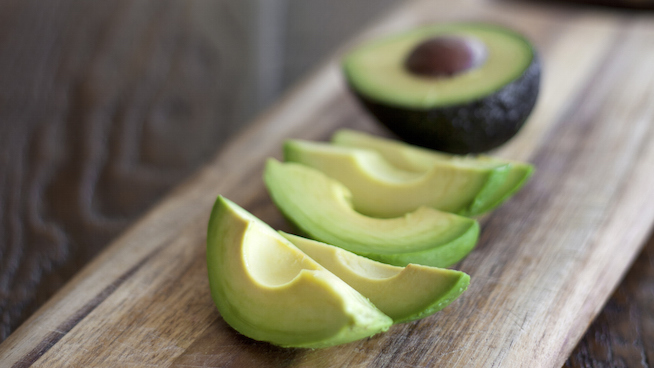These Simple Eating Tips Will Improve Your Cardiovascular Health
![]()
In the United States, the No. 1 cause of death is heart disease. Several changes to your diet should be made to decrease your chance of heart disease and to even reverse heart disease. Healthy eating can improve your cardiovascular system, as can exercise (discussed in Top 3 Exercises to improve Cardiovascular Health).
Healthy eating can be difficult, but knowing what to eat is the beginning of a heart-healthy lifestyle.
According to Harvard Health Publications, here are the top 3 things that should be avoided:
1. Processed meats
These foods are preserved using salts and nitrites. Examples include deli meats, sausage, bacon and hot dogs.
2. White bread, white rice, and low-fiber breakfast cereals
3. Soft drinks and other sugary drinks
The body does not process liquid calories the same as solid calories, which could result in consumption of the same amount of calories from liquid as “add-ons.” There are 10 teaspoons of table sugar in one 12-ounce can of soda.
What should I eat to reduce my chance of heart disease, and be considered healthy eating?

1. Fruit
Choose locally grown fresh fruit (no added sugar).
2. Vegetables
Choose locally grown fresh vegetables when available.
3. Grains & Cereals
Choose 100% whole grain products.
4. Protein
Egg whites or liquid egg substitutes, fish, scallops, and shrimp (broiled or grilled).
5. Healthy Drinks
Water, green tea, Caffeine-free herbal teas.
One of the most respected people in the world of health care is Dean Ornish, Clinical Professor of Medicine at UCSF and Founder/President of the Preventive Medicine Research Institute. He has written several books and offered many suggestions to reduce the chance of heart disease and even reverse heart disease.
A sample of what Dr. Ornish recommends for diet and stress management

1. Diet
Lower intake of high-fat animal proteins, red meat, pork, and full-fat dairy products. Increase consumption of complex carbohydrates such as fruits, vegetables, whole grains, legumes, non-fat dairy products, soy products, and egg whites. Eat moderate amounts of fish, skinless chicken, avocados, nuts, and seeds.
2. Stress management
Techniques include stretching, relaxation, breathing, imagery, and meditation. The keys are practicing stress management techniques, developing a relaxation routine, locating a safe and quiet place to relax, finding a good time of the day for relaxation, and creating a positive mental attitude about relaxation daily.
[cf]skyword_tracking_tag[/cf]RECOMMENDED FOR YOU
MOST POPULAR
These Simple Eating Tips Will Improve Your Cardiovascular Health
![]()
In the United States, the No. 1 cause of death is heart disease. Several changes to your diet should be made to decrease your chance of heart disease and to even reverse heart disease. Healthy eating can improve your cardiovascular system, as can exercise (discussed in Top 3 Exercises to improve Cardiovascular Health).
Healthy eating can be difficult, but knowing what to eat is the beginning of a heart-healthy lifestyle.
According to Harvard Health Publications, here are the top 3 things that should be avoided:
1. Processed meats
These foods are preserved using salts and nitrites. Examples include deli meats, sausage, bacon and hot dogs.
2. White bread, white rice, and low-fiber breakfast cereals
3. Soft drinks and other sugary drinks
The body does not process liquid calories the same as solid calories, which could result in consumption of the same amount of calories from liquid as “add-ons.” There are 10 teaspoons of table sugar in one 12-ounce can of soda.
What should I eat to reduce my chance of heart disease, and be considered healthy eating?

1. Fruit
Choose locally grown fresh fruit (no added sugar).
2. Vegetables
Choose locally grown fresh vegetables when available.
3. Grains & Cereals
Choose 100% whole grain products.
4. Protein
Egg whites or liquid egg substitutes, fish, scallops, and shrimp (broiled or grilled).
5. Healthy Drinks
Water, green tea, Caffeine-free herbal teas.
One of the most respected people in the world of health care is Dean Ornish, Clinical Professor of Medicine at UCSF and Founder/President of the Preventive Medicine Research Institute. He has written several books and offered many suggestions to reduce the chance of heart disease and even reverse heart disease.
A sample of what Dr. Ornish recommends for diet and stress management

1. Diet
Lower intake of high-fat animal proteins, red meat, pork, and full-fat dairy products. Increase consumption of complex carbohydrates such as fruits, vegetables, whole grains, legumes, non-fat dairy products, soy products, and egg whites. Eat moderate amounts of fish, skinless chicken, avocados, nuts, and seeds.
2. Stress management
Techniques include stretching, relaxation, breathing, imagery, and meditation. The keys are practicing stress management techniques, developing a relaxation routine, locating a safe and quiet place to relax, finding a good time of the day for relaxation, and creating a positive mental attitude about relaxation daily.
[cf]skyword_tracking_tag[/cf]










